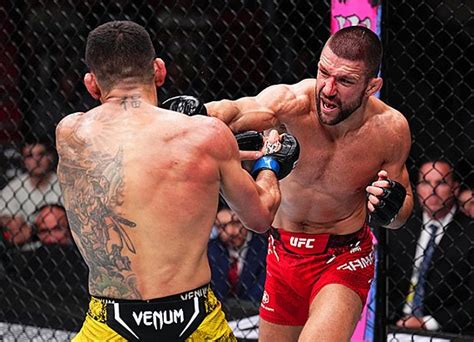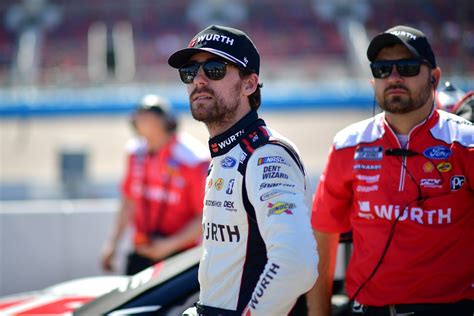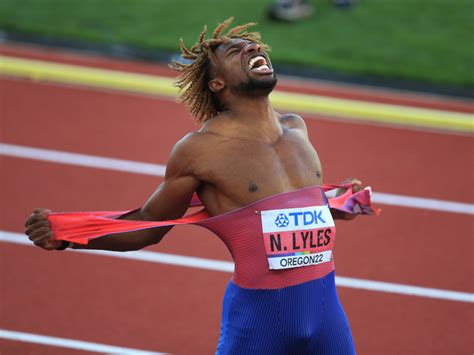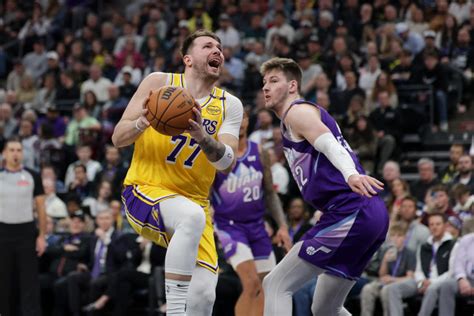
Paddy “The Baddy” Pimblett has ignited a war of words with Arman Tsarukyan, labeling him a “tool” and expressing his preference for a fight against Justin Gaethje. The rising UFC star’s comments come amid speculation about his next opponent and his ambitions within the lightweight division.
LAS VEGAS – Paddy Pimblett has publicly dismissed Arman Tsarukyan while simultaneously voicing his desire to face Justin Gaethje in the Octagon. The outspoken UFC lightweight contender didn’t mince words when discussing Tsarukyan, using the insult “tool” to describe him and seemingly downplaying his accomplishments within the division. Pimblett’s comments, reported by Yahoo Sports, add fuel to the ongoing speculation surrounding his next opponent and his trajectory within the UFC.
“I’d rather fight Gaethje,” Pimblett stated. “He’s a bigger name, a more exciting fight, and I think the fans would rather see that. Tsarukyan’s just a tool.” This blunt assessment underscores Pimblett’s focus on high-profile matchups and his clear strategy to build his brand through engaging fights.
The rivalry between Pimblett and Tsarukyan isn’t entirely new, with both fighters having exchanged words previously on social media and in interviews. However, Pimblett’s recent “tool” remark has escalated the tension and likely solidified Tsarukyan’s desire to face him in the cage. Tsarukyan, currently ranked higher in the lightweight division than Pimblett, has consistently called for a fight against ranked opponents to climb the ladder toward a title shot. A fight against Pimblett, despite the Liverpudlian’s lower ranking, would offer a significant boost in visibility and popularity, something Tsarukyan clearly recognizes.
Pimblett’s preference for Justin Gaethje, a former interim lightweight champion known for his relentless fighting style and exciting performances, is driven by several factors. Gaethje’s established name recognition within the UFC and his reputation for delivering crowd-pleasing fights make him an attractive opponent for Pimblett. A victory over Gaethje would catapult Pimblett into the upper echelons of the lightweight division and significantly enhance his marketability. Furthermore, Gaethje’s willingness to engage in striking exchanges aligns with Pimblett’s own fighting style, promising a potentially thrilling contest for fans.
While Pimblett’s callout of Gaethje is ambitious, the likelihood of that fight materializing in the near future remains uncertain. Gaethje is currently ranked among the top contenders in the lightweight division and is likely focused on pursuing a title shot or facing other highly ranked opponents. However, Pimblett’s rising star power and his ability to generate buzz around his fights could potentially make the matchup more appealing to the UFC brass.
The dynamics within the UFC lightweight division are constantly evolving, and Pimblett’s strategic callouts and willingness to engage in verbal sparring with other fighters are part of his broader strategy to climb the ranks. His focus on building his brand and creating compelling matchups is a calculated approach that has already yielded significant results. Whether he ultimately secures a fight against Gaethje or faces another opponent, Pimblett’s presence in the lightweight division promises to be a source of continued excitement and controversy.
Background on Paddy Pimblett
Paddy “The Baddy” Pimblett, hailing from Liverpool, England, has quickly become one of the most recognizable and talked-about figures in the UFC. His charismatic personality, combined with his exciting fighting style, has garnered him a large and dedicated fanbase. Pimblett’s journey to the UFC began in the Cage Warriors promotion, where he captured the featherweight championship before transitioning to the UFC in 2021.
Since joining the UFC, Pimblett has secured a string of impressive victories, showcasing his grappling skills and his willingness to engage in striking exchanges. His fights are often marked by his relentless pressure and his ability to overcome adversity. Pimblett’s success in the Octagon, coupled with his engaging personality outside of it, has made him a valuable asset to the UFC. He has successfully tapped into the younger generation of MMA fans, and his social media presence is significant, helping him connect with a wider audience. His post-fight interviews are known for their colorful language and his passionate support for his hometown of Liverpool.
Background on Arman Tsarukyan
Arman Tsarukyan represents a different breed of lightweight contender. The Armenian-Russian fighter is known for his technical prowess, grappling expertise, and calculated approach to fighting. Tsarukyan made his UFC debut in 2019 against Islam Makhachev, in a bout that was widely considered one of the best debut performances in UFC history, despite him losing by unanimous decision. The fight showcased his exceptional wrestling skills and his ability to compete at the highest level.
Since then, Tsarukyan has compiled a strong record in the UFC, defeating a number of notable opponents. He is currently ranked among the top contenders in the lightweight division and is widely regarded as a future title challenger. Tsarukyan’s fighting style is characterized by his relentless takedowns, his dominant top control, and his ability to wear down his opponents. While he may not possess the same level of notoriety as Pimblett, Tsarukyan’s skills and accomplishments within the Octagon are undeniable. He represents a serious threat to anyone in the lightweight division.
Background on Justin Gaethje
Justin Gaethje is a veteran of the UFC and a former interim lightweight champion. Known for his brutal fighting style and his willingness to engage in all-out wars, Gaethje has established himself as one of the most exciting and popular fighters in the sport. His fights are often characterized by their high pace, their relentless striking exchanges, and their unpredictable nature.
Gaethje’s career has been marked by a series of memorable battles against some of the biggest names in the lightweight division. He has faced opponents such as Eddie Alvarez, Dustin Poirier, Tony Ferguson, and Khabib Nurmagomedov, delivering thrilling performances each time. Gaethje’s fighting style is based on his exceptional wrestling background, which he uses to keep the fight standing and to unleash his powerful striking attacks. He is known for his devastating leg kicks, his sharp boxing combinations, and his unwavering toughness. While he has experienced both victories and defeats in his career, Gaethje’s commitment to delivering exciting fights has made him a fan favorite and a perennial contender in the lightweight division.
Analysis of Pimblett’s Strategy
Paddy Pimblett’s approach to building his career in the UFC is multifaceted. He combines his fighting skills with a strong understanding of the entertainment aspect of the sport. His ability to generate hype around his fights, coupled with his willingness to engage in verbal sparring with other fighters, has helped him to quickly rise in popularity.
Pimblett’s callout of Justin Gaethje is a calculated move designed to elevate his status within the UFC. By targeting a high-profile opponent with a large fanbase, Pimblett is aiming to attract more attention to his own career. A victory over Gaethje would not only significantly enhance his ranking in the lightweight division but also solidify his position as a major draw for the UFC.
However, Pimblett’s dismissal of Arman Tsarukyan may prove to be a risky strategy. Tsarukyan is a highly skilled and dangerous fighter who is determined to climb the ranks of the lightweight division. By publicly disrespecting Tsarukyan, Pimblett has likely motivated him even further and increased the likelihood of a future confrontation between the two fighters.
Ultimately, Pimblett’s success in the UFC will depend on his ability to continue winning fights and to maintain his engaging personality. While his strategic callouts and his willingness to create drama may attract attention, it is his performance in the Octagon that will ultimately determine his long-term success.
The Lightweight Division Landscape
The UFC lightweight division is one of the most competitive and talent-rich divisions in the sport. It is home to a diverse group of fighters, each with their own unique skills and fighting styles. The current champion, Islam Makhachev, is widely regarded as one of the most dominant grapplers in the UFC. Other top contenders in the division include Charles Oliveira, Dustin Poirier, Justin Gaethje, and Michael Chandler.
The lightweight division is known for its exciting fights and its unpredictable nature. The depth of talent in the division means that any fighter can potentially defeat any other fighter on any given night. This makes the lightweight division one of the most compelling divisions to watch in the UFC.
Paddy Pimblett’s entry into the lightweight division has added another layer of intrigue to the already complex landscape. His presence has generated significant buzz and has created a number of potential matchups that fans are eager to see. Whether he ultimately rises to the top of the division remains to be seen, but his impact on the lightweight landscape is undeniable.
Financial Implications and Marketability
Pimblett’s persona and fighting style are lucrative for the UFC. His marketability extends beyond just fight fans; he attracts a wider audience due to his personality and social media presence. This translates to higher pay-per-view buys, increased merchandise sales, and greater overall revenue for the UFC when he is on a card.
A fight against Justin Gaethje would be a financial windfall for all parties involved. Gaethje’s established fanbase and his reputation for delivering exciting fights would guarantee a significant audience for the event. The clash of styles between Pimblett and Gaethje would also add to the appeal of the fight, attracting both casual and hardcore MMA fans.
Conversely, a fight against Arman Tsarukyan, while potentially challenging from a competitive standpoint, may not generate the same level of financial interest. Tsarukyan’s more technical and less flamboyant fighting style may not appeal to the same broad audience as Gaethje’s brawling approach.
Ultimately, the UFC’s decision on Pimblett’s next opponent will likely be influenced by a combination of factors, including competitive considerations, financial implications, and the overall marketability of the fight.
Potential Outcomes and Future Scenarios
Several scenarios could unfold in the coming months regarding Paddy Pimblett’s career trajectory. He could be matched up against Justin Gaethje, a fight that would undoubtedly generate significant hype and attention. Alternatively, he could be booked to face Arman Tsarukyan, a matchup that would test his skills against a highly ranked and dangerous opponent.
Another possibility is that Pimblett could be matched up against a different opponent altogether, perhaps someone who is slightly lower ranked but who presents a compelling stylistic matchup. The UFC may also choose to prioritize Pimblett’s continued development by giving him a fight against a rising prospect.
Regardless of who he faces next, Pimblett’s future in the UFC is bright. His ability to generate excitement and his willingness to engage with fans make him a valuable asset to the promotion. With continued success in the Octagon, he has the potential to become one of the biggest stars in the sport.
The “tool” insult towards Tsarukyan could also backfire, potentially hindering Pimblett’s career if he doesn’t back it up with a win against a top-ranked opponent. The pressure to perform and deliver on his promises will only intensify as he continues to rise through the ranks.
FAQ Section
1. Why did Paddy Pimblett call Arman Tsarukyan a “tool”?
Pimblett’s comment appears to be part of a broader strategy to build his brand and generate interest in his fights. By using inflammatory language and publicly dismissing Tsarukyan, Pimblett is aiming to attract attention and create a potential rivalry. He likely believes this will increase his marketability and make him a more attractive opponent for higher-ranked fighters. It could also stem from genuine dislike and a difference in fighting philosophies.
2. Why does Pimblett prefer to fight Justin Gaethje?
Pimblett believes a fight against Justin Gaethje would be more beneficial for his career for several reasons:
- Name Recognition: Gaethje is a well-known and established fighter in the UFC, having been an interim champion. A victory over him would significantly boost Pimblett’s profile.
- Exciting Fight: Gaethje is known for his exciting and crowd-pleasing fighting style. Pimblett likely believes that a fight against Gaethje would be more entertaining for fans, leading to greater exposure.
- Marketability: Gaethje’s popularity would bring more attention to the fight and increase Pimblett’s marketability, potentially leading to more lucrative opportunities in the future.
3. Is a fight between Pimblett and Gaethje likely to happen soon?
While Pimblett has expressed his desire to fight Gaethje, the likelihood of that fight happening soon is uncertain. Gaethje is currently ranked higher in the lightweight division and is likely focused on pursuing a title shot or facing other top contenders. The UFC’s matchmaking decisions also depend on various factors, including fighter availability, market demand, and the overall landscape of the division. Pimblett would likely need to climb the ranks further to make the fight more appealing to Gaethje and the UFC.
4. What are Arman Tsarukyan’s accomplishments in the UFC?
Arman Tsarukyan is a highly skilled and accomplished fighter in the UFC lightweight division. He is currently ranked among the top contenders and has a strong record, including victories over several notable opponents. He put on a strong performance in his debut against Islam Makhachev, despite losing. He is known for his technical prowess, grappling expertise, and calculated approach to fighting. He is widely regarded as a future title challenger.
5. What is Pimblett’s overall strategy for building his career in the UFC?
Pimblett’s strategy involves a combination of fighting skills, entertainment value, and strategic callouts. He aims to generate hype around his fights by engaging in verbal sparring with other fighters, using social media effectively, and cultivating a charismatic personality. He also focuses on delivering exciting performances in the Octagon, which helps to attract and retain fans. By combining these elements, Pimblett is attempting to build his brand and create a successful career in the UFC. He seems to follow in the footsteps of fighters like Conor McGregor in using trash talk and controversy to generate interest.
The Psychology of Callouts in MMA
Callouts, like the one Pimblett made, are a common tactic in MMA for a variety of reasons that extend beyond simple trash talk. They are a strategic tool used to:
- Influence Matchmaking: Fighters use callouts to publicly lobby the UFC to book them in specific fights. By expressing interest in a particular opponent, they can sway public opinion and pressure the UFC into making the desired matchup.
- Elevate Status: Calling out a higher-ranked or more famous fighter is a way to elevate one’s own status. Even if the fight doesn’t immediately materialize, the association with a bigger name can boost a fighter’s profile.
- Negotiate Power: A fighter who is in demand has more leverage in contract negotiations. Generating buzz and showing a willingness to fight anyone can increase a fighter’s value to the UFC.
- Psychological Warfare: Callouts can be a form of psychological warfare, designed to unsettle or intimidate a potential opponent. The goal is to gain a mental edge before the fight even begins.
- Brand Building: Creating rivalries and generating controversy are effective ways to build a personal brand and attract attention. Fighters like Conor McGregor have masterfully used this strategy to become global superstars.
The UFC’s Role in Shaping Narratives
The UFC plays a significant role in shaping the narratives surrounding its fighters and events. The promotion has a vested interest in creating compelling storylines and rivalries that will generate excitement and drive revenue. The UFC often amplifies callouts and controversies through its media channels, further fueling the hype around potential fights.
The UFC also has the power to influence matchmaking decisions, taking into account factors such as fighter rankings, marketability, and potential for exciting matchups. The promotion’s decisions can significantly impact a fighter’s career trajectory, either propelling them to stardom or hindering their progress.
The Risk-Reward of Trash Talk
While trash talk can be an effective tool for building a brand and generating interest, it also carries risks. A fighter who talks a big game but fails to deliver in the Octagon can quickly lose credibility and damage their reputation.
Furthermore, trash talk can create animosity and lead to intense rivalries that spill over into the personal lives of fighters. This can create a stressful and potentially dangerous environment, both inside and outside of the cage.
Ultimately, the decision of whether or not to engage in trash talk is a personal one, and each fighter must weigh the potential risks and rewards.
The Future of Pimblett’s Career
Paddy Pimblett’s career in the UFC is still in its early stages, but he has already shown tremendous potential. His combination of fighting skills, personality, and strategic approach to building his brand has made him one of the most talked-about fighters in the sport.
As he continues to climb the ranks of the lightweight division, he will face increasingly difficult challenges. His ability to adapt his fighting style, maintain his engaging personality, and make smart career decisions will ultimately determine his long-term success.
Whether he becomes a champion or simply a popular and entertaining fighter, Pimblett’s presence in the UFC promises to be a source of continued excitement and controversy for years to come.
Expanding on the Fan Perspective
From a fan’s perspective, Pimblett represents a refreshing change in a sport often dominated by stoic and calculated personalities. He is brash, unapologetic, and fiercely loyal to his roots, making him relatable to a large segment of the fanbase, particularly in Europe.
His fighting style, while sometimes reckless, is undeniably entertaining. He is willing to engage in striking exchanges and take risks, which often leads to exciting finishes.
However, some fans are critical of Pimblett’s perceived lack of respect for his opponents and his tendency to rely on hype rather than solely on his fighting skills. These fans argue that he needs to prove himself against higher-ranked opponents before he can be considered a legitimate contender.
Ultimately, Pimblett’s success will depend on his ability to win over both his supporters and his detractors. By continuing to deliver exciting performances and showcasing his growth as a fighter, he can solidify his position as one of the most popular and compelling figures in the UFC.
Ethical Considerations in MMA Journalism
Reporting on callouts and controversies in MMA requires a balanced approach that adheres to ethical journalistic standards. It is important to:
- Present the Facts Accurately: Ensure that all information is verified and presented in a fair and unbiased manner.
- Provide Context: Offer background information and context to help readers understand the motivations and perspectives of the fighters involved.
- Avoid Sensationalism: Refrain from exaggerating or sensationalizing the story in order to attract attention.
- Protect the Privacy of Individuals: Respect the privacy of fighters and avoid publishing information that could be harmful or embarrassing.
- Attribute Sources Properly: Clearly identify the sources of information and attribute quotes accurately.
By adhering to these ethical guidelines, MMA journalists can provide informative and responsible coverage of the sport, helping fans to understand the complexities and nuances of the MMA world.
Long-Term Implications for the Lightweight Division
Pimblett’s presence in the lightweight division has several long-term implications:
- Increased Popularity: His popularity will likely attract more viewers to the division and generate more revenue for the UFC.
- New Matchup Possibilities: He creates a number of new and exciting matchup possibilities, which will add to the overall intrigue of the division.
- Shift in Dynamics: His brash personality and willingness to challenge established fighters could disrupt the existing power dynamics in the division.
- Influence on Other Fighters: His success could encourage other fighters to adopt similar strategies for building their brands and generating attention.
- Evolution of the Sport: His impact on the lightweight division could contribute to the overall evolution of the sport, both in terms of fighting styles and marketing strategies.
Conclusion
Paddy Pimblett’s recent comments regarding Arman Tsarukyan and Justin Gaethje have ignited a firestorm of debate within the MMA community. His strategic callouts and his willingness to engage in verbal sparring are part of a broader strategy to build his brand and elevate his status within the UFC.
While his approach has generated both praise and criticism, there is no denying that Pimblett has quickly become one of the most talked-about fighters in the sport. His future in the UFC is uncertain, but his impact on the lightweight division is already being felt. Whether he ultimately rises to the top or simply remains a popular and entertaining fighter, Pimblett’s presence in the UFC promises to be a source of continued excitement and controversy for years to come. The “tool” insult may be remembered either as a brilliant marketing tactic or a regrettable misstep depending on his future performances.









